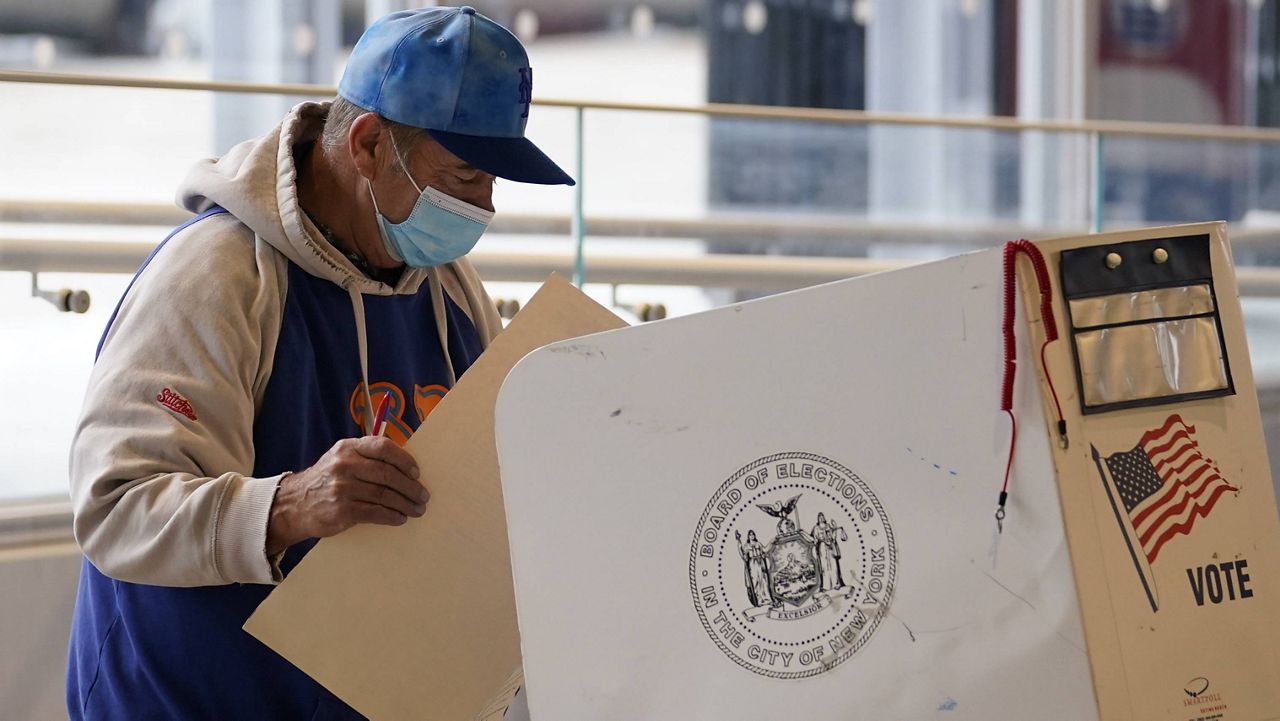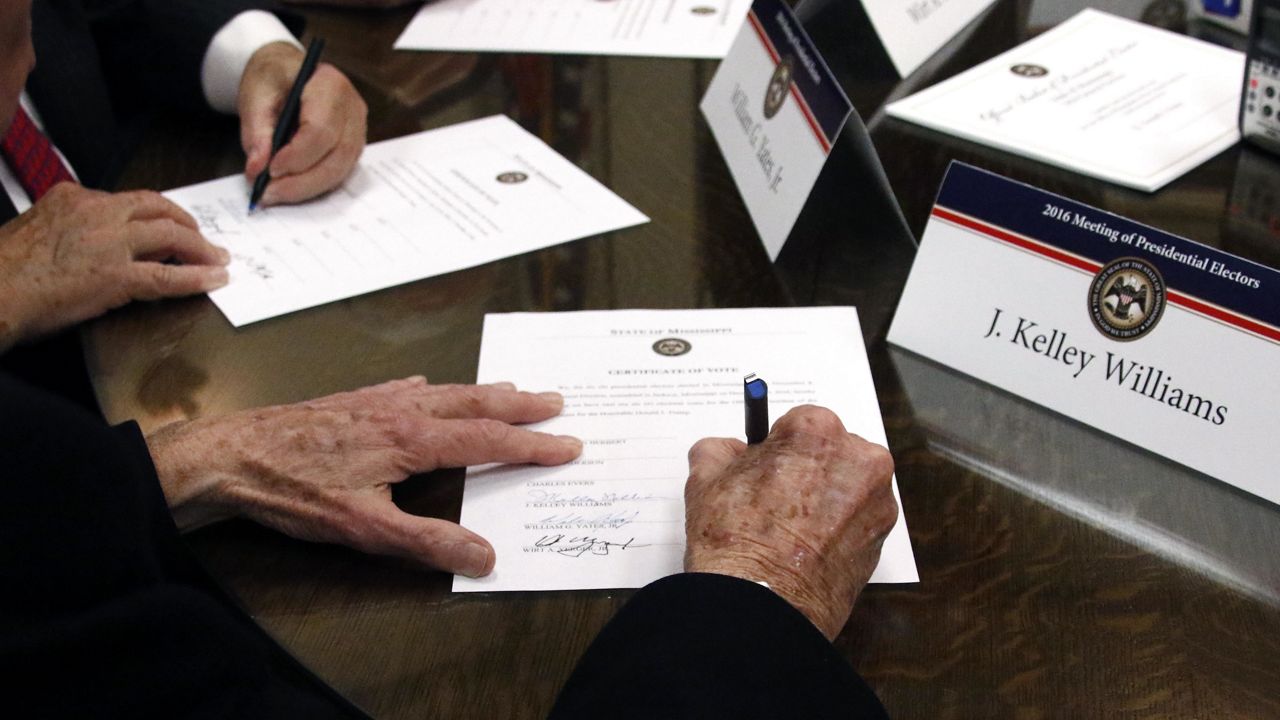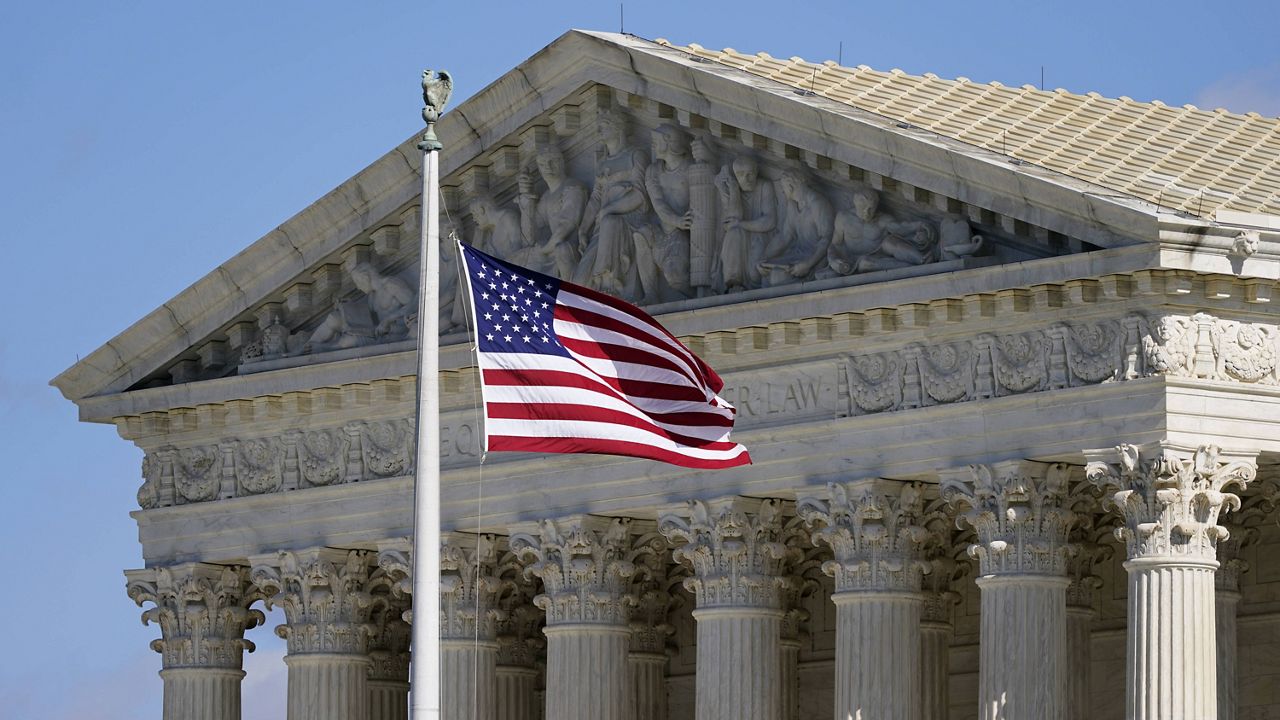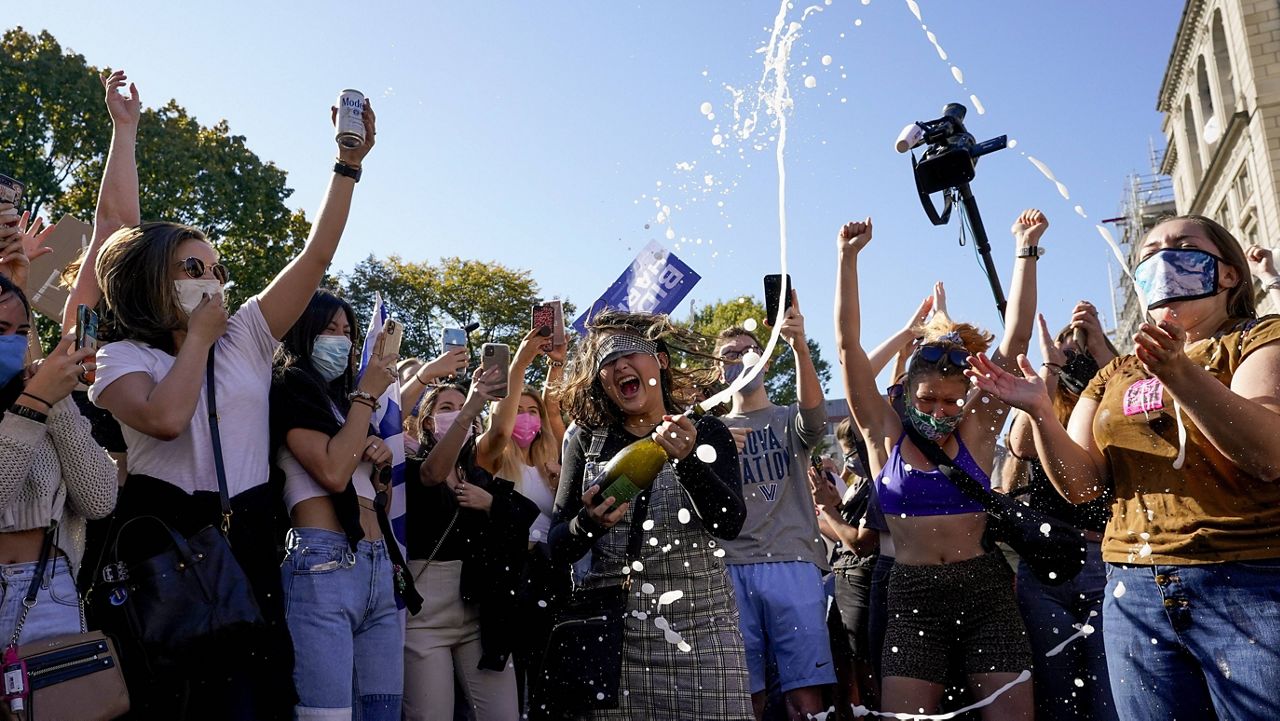While Donald Trump and Joe Biden were the headliners on Election Day and there were a slew of down-ballot races, including ones to decide which party will control the U.S. Senate and House, there were also dozens of ballot initiatives on the state level that will have a major impact on people’s lives one way or the other.
Marijuana won in a sweep on Election Day, with four states voting to legalize recreational use of the drug and two states approving measures to allow medical cannabis.
Arizona, Montana, New Jersey and South Dakota now join 11 other states and the District of Columbia as places where recreational marijuana is legal. Arizona, which rejected a similar initiative in 2018, voted 60%-40% (with 85% of precincts reporting) to legalize it this time around. In New Jersey, 67% of voters approved (with 63% reporting), and 58% of Montana voters passed it (with 93% in).
South Dakota became the first state ever to legalize recreational and medical marijuana in the same election, with 53% giving the green light to recreational use and 69% voting for medical pot (95% reporting).
Sixty-eight percent of Mississippi voters OK'd medical marijuana. The state's ballot had dueling initiatives on the issue: one added through a signature drive and an alternative plan from state lawmakers. The two proposals offered different regulations of how the program would operate. The signature-drive version won out.
Supporters say legalization will provide a sizable tax boost for states, reduce the proliferation of more addictive and dangerous drugs like opioids, and unclog courts and prisons while not ruining the lives of casual marijuana users.
Arguments against legalization included that it would lead to easier access to the drug for young people, unsafe workplaces, a glut of licensed distributors invading cities and other “societal ills.” None of the marijuana-related initiatives Tuesday allow for the drug to be used by minors.
Marijuana wasn't the only drug on U.S. ballots Tuesday. In Oregon, voters approved Measure 109, making the state the first to legalize the use of psilocybin-producing mushrooms – more commonly known as “magic mushrooms” – for mental health therapy.
With 81% of precincts reporting, the initiative had 56% support.
Psilocybin will soon be available to people aged 21 or older and under the supervision of a licensed facilitator.
War veterans with PTSD, terminally ill patients and others suffering from anxiety say psilocybin helped them immeasurably. A clinical trial of psilocybin is underway to test its potential antidepressant properties, the U.S. government's National Library of Medicine says. Backers of Measure 109 argued that Oregon, which was the first state in the nation to decriminalize marijuana, should lead the way in legalizing therapeutic, regulated use of psilocybin.
But the Oregon Psychiatric Physicians Association and the American Psychiatric Association said that science does not yet prove that psilocybin is a safe medical treatment for mental health conditions.
Meanwhile in Washington, D.C., on Tuesday, voters approved a measure effectively decriminalizing the use of psychedelic plants, including psilocybin mushrooms.
Voters in Colorado and Louisiana both voted Tuesday on measures addressing abortion access, but the outcomes were very different.
Fifty-nine percent of Colorado voters (with 85% of precincts in) rejected Proposition 115, which would have prohibited abortion after 22 weeks of pregnancy, with the only exception being if the mother’s life was in danger. Colorado has no gestational limit on abortion, which has made the state a haven for women from other states seeking the procedure later in pregnancy.
Louisiana's constitutional amendment won with 62% approval. A line will be added to the constitution saying: "To protect human life, nothing in this constitution shall be construed to secure or protect a right to abortion or require the funding of abortion." The amendment is in anticipation of the Supreme Court someday overruling Roe v. Wade, which would then allow states to set their own laws regarding abortion.
Louisiana already has a law on the books that would automatically ban abortions if Roe is tossed out. The amendment seeks to assure that constitutional rights, such as privacy or due process, could not be interpreted by state courts as reasons to legalize abortion or use taxpayer dollars to fund the procedure.
Fifty-six percent of California voters (with 72% of precincts reporting) approved Proposition 22, which will exempt app-based transportation and delivery companies such as Uber, Lyft, and DoorDash from California’s labor laws requiring companies to offer employment benefits such as overtime pay, health care and unemployment insurance to their workers. Under the plan, the companies will be able to designate their drivers as independent contractors, not employees.
It was the most expensive ballot initiative in state history, with the industry spending about $200 million on its efforts to win over voters while opponents spent around $19 million.
Supporters argued that exempting the companies will give employees added flexibility and spare businesses the expensive costs of meeting the state’s employment laws. Uber and Lyft had previously threatened to pull out of California because of the worker classification issue.
Those who were fighting the proposal, which included many drivers, said the companies should have to follow the same requirements as other businesses and pony up for the benefits their workers need and deserve.
Illinois is sticking with its flat state income tax.
Voters shot down a chance to repeal a 50-year-old constitutional requirement imposing a flat tax – currently 4.95% – regardless of income.
Democratic Gov. J.B. Pritzker led the charge to change the system to one that resembles the way federal income tax is collected, using six income brackets. Fifty-five percent of voters rejected the proposal.
The support and opposition campaigns raised more than $120 million combined. Democrats were largely in favor of the amendment, while Republicans were against it. Citadel hedge fund manager Ken Griffin spent $47 million of his own money on trying to defeat it.
Pritzker, a billionaire himself, argued that it’s not fair that firefighters and grocery store employees are paying the same percentage to taxes as high earners such as Griffin, and that the change would pour much-needed revenue into the state’s coffers.
Opponents said the amendment would have propelled the wealthy and their businesses to flee the state in search for more favorable conditions, leading to job losses in Illinois.
Floridians voted Tuesday to give minimum-wage workers a raise.
The measure, which passed with nearly 61% support, will boost the state’s minimum wage to $15 an hour by 2026.
The minimum wage in the Sunshine State is currently $8.56 an hour. Amendment 2 raises it to $10 in September 2021, and it will gradually tick upward by $1 per year until it reaches $15 an hour.
Many workers said a raise is needed, but some business owners and operators argued that the measure could force them to lay off workers.
Massachusetts and Alaska could become just the second and third states to use ranked-choice voting in elections. Maine is the only state that currently uses the process.
Neither election had been called by The Associated Press as of Wednesday morning. With 87% of precincts reporting in Massachusetts, 54.8% had voted against it. With half of precincts in Alaska reporting, 64.8% of voters had rejected it.
Ranked-choice voting allows voters to rank candidates by their first choice, second choice, etc. If no candidate receives a majority, the last-place finisher is then removed and ballots are tabulated again with votes going to the highest remaining candidate on each ballot. This process continues until a candidate receives more than 50% of the vote.
The Alaska proposal, which also includes moving to an open-party system of voting, would apply to statewide elections, including for president, Congress, governor and the state Legislature. Municipal and statewide judicial elections or votes on ballot initiatives would not be affected.
The Massachusetts measure would apply to elections for governor, attorney general, the state Legislature, county offices such as district attorney and sheriff, and federal congressional races, but not municipal or presidential elections.
Proponents of ranked-choice voting argue that it would benefit third-party hopefuls while alleviating fears about “spoiler” candidates, ensure that a candidate must receive majority support to win and eliminate costly runoff elections.
Massachusetts Gov. Charlie Baker and Lt. Gov. Karyn Polito, both Republicans, came out against the plan last week, saying it would potentially confuse voters, hurting turnout, and delay election results while costing taxpayers more.
Opponents in Alaska say ranked-choice voting is being pushed by outside interests with unknown goals.
In June, the Mississippi Legislature voted to nix its state flag, which had flown for more than 120 years with the Confederate battle emblem tucked in the corner.
Now Mississippi voters have approved a new, controversy-free design.
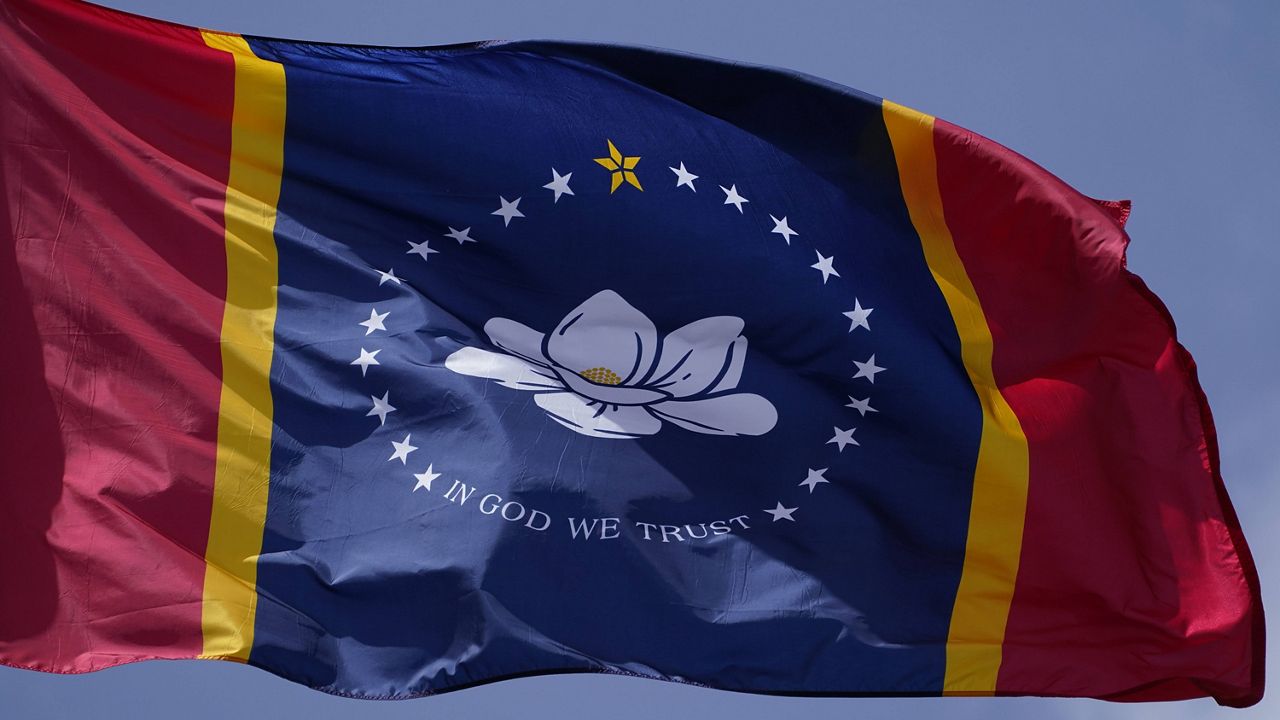
The Commission to Redesign the Mississippi State Flag had approved a design, called “The New Magnolia,” which 72% of voters gave their seal of approval Tuesday (with 92% reporting). The center of the flag is blue with a magnolia – the state flower – and emblazoned with the phrase “IN GOD WE TRUST.” That is flanked by a thick red vertical stripe and a think yellow one on both sides.
Voters could have made California the first state to end the use of a cash bail system.
Proposition 25 asked Californians whether they wanted to uphold or reject Senate Bill 10, which replaced cash bail with a risk assessment system for determining whether to release suspects before their trials.
The measure failed, with 56% of voters saying no.
Proponents argued that abolishing cash bail would have prevented people arrested for low-level offenses who can’t afford to pay bail from spending months in jail awaiting trial.
Those who opposed Prop 25 said they were worried that releasing defendants could have negatively impacted public safety.
Even some critics of cash bail weren’t sold on the proposal. They said they were concerned the algorithm used in the risk assessment could have had flaws that deepened racial disparities because previous arrests or convictions could have been the result of structural racism.
California voters also rejected a measure that would have ended the state's 24-year-old affirmative action ban.
Ward Connerly, a former University of California regent who championed Prop 209 in the 1990s and is Black, said he wanted to make sure California treated everyone as equals and that hires and college admissions were not made on the basis of race, ethnicity or national origin.
But proponents of Prop 16 – the ballot measure that would repeal Prop 209 – said affirmative action is needed to level the playing field for Blacks after decades of systemic racism.
Fifty-six percent of voters opposed the measure.
Those who were against it shared Connerly’s views, saying there is a stigma attached to those who benefit from affirmative action and that the practice disincentivizes people from achieving success on their own merits.
Some of the measure’s opponents also were concerned that it could have result in fewer opportunities for Asian Americans, who account for 7% of California’s population but represent 33% of the first-year students enrolled in the state’s public universities.
If Proposition 113 passes, Colorado would team up with 14 other states and Washington, D.C., in the National Popular Vote Interstate Compact. The states in the pact vow to give all their electoral college votes to the popular vote winner in the presidential election. It would only take effect if it has enough states on board to account for 270 electoral votes, the number needed to win the election. (Currently, it has 187 votes; Colorado’s nine votes would put it at 196.)
The vote was too close to call Wednesday morning. With 85% of precincts in, 52% of voters were in favor of it.
Those who back the compact say it would ensure that every vote cast is weighed equally and that the current winner-take-all system that exists in 48 states leads to candidates ignoring those states that are a foregone conclusion.
Opponents of Prop 113 argue that the electoral college, as is, encourages candidates to campaign in rural areas as well as cities and that casting electoral votes for a candidate that did not win the state would go against the will of the people there.
The issue has largely become a partisan one, with Democrats pushing for the popular vote to decide the presidency, while the GOP prefers to keep the status quo. Republicans George W. Bush in 2000 and Donald Trump in 2016 won the White House despite losing the popular vote.
The Associated Press contributed to this report.




